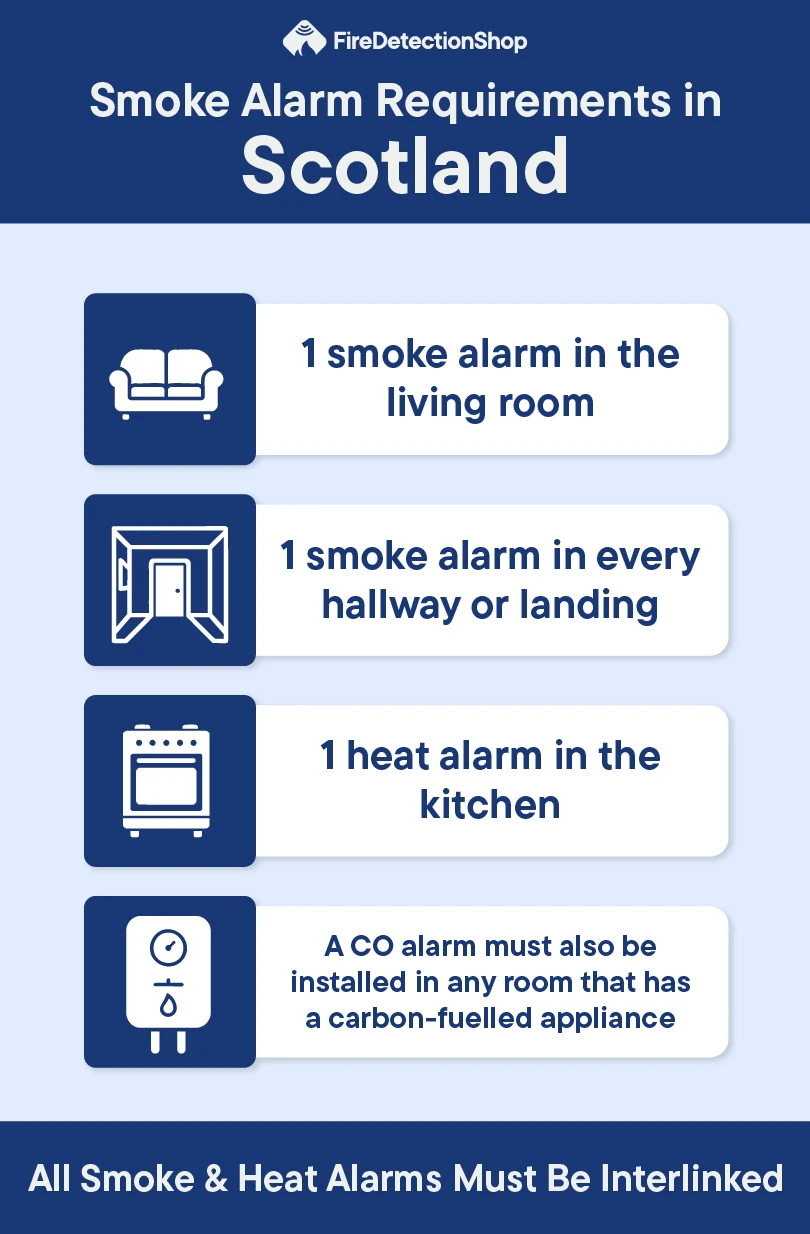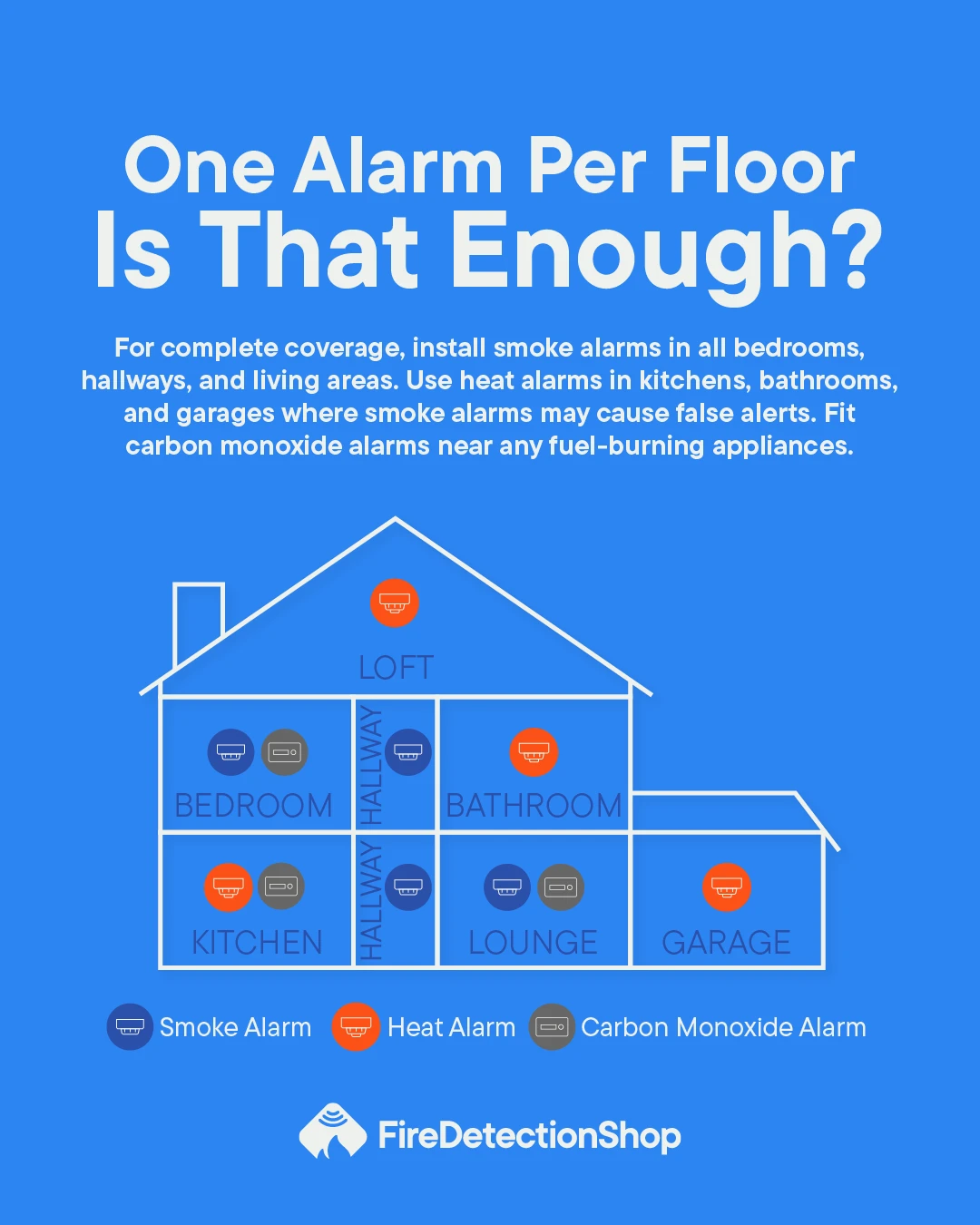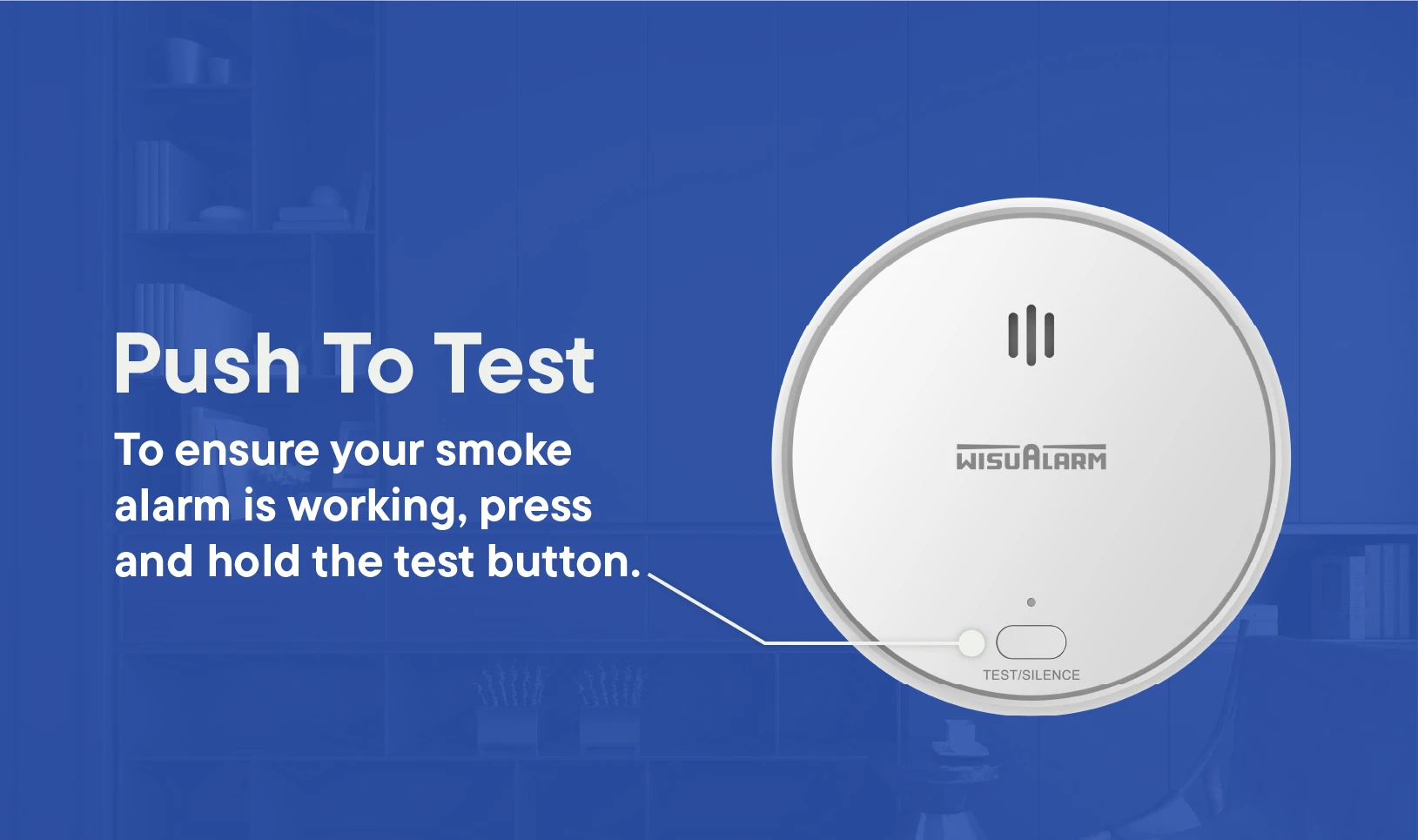
Need assistance?
Need Assistance? Call Us 0330 058 0630
06/11/2025 • by Alice P

If you're living in or renting out a home in Scotland, you're probably aware that the rules around smoke alarms have tightened up in recent years. But what exactly do you need to know in 2025? Whether you’re a landlord managing several properties or a homeowner just trying to do the right thing, this guide will walk you through Scotland’s current smoke alarm requirements.
After the tragic Grenfell Tower fire in 2017, fire safety became a top priority across the UK.
The Scottish Government took swift action, aiming to improve safety in all homes, not just rented ones. So, the changes weren't just for landlords; every property, including owner-occupied homes, now has to meet the same high standard.
The goal? To make sure everyone in Scotland has an equal level of protection against fire.

Here’s a quick breakdown:
Private landlords – You must comply before renting out or renewing tenancy agreements.
Social landlords – Must follow the same regulations.
Homeowners – Yep, even if you own and live in your home, these rules still apply.
New builds and renovations – If you're building or doing major refurbishments, your property must meet the latest standards.
As of the most recent updates, every home in Scotland must have:
• 1 smoke alarm in the living room (or the room used most often)
• 1 smoke alarm in every hallway or landing
• 1 heat alarm in the kitchen
• All smoke and heat alarms must be interlinked
• A carbon monoxide (CO) alarm must also be installed in any room that has a carbon-fuelled appliance such as a boiler, fire, or stove. This alarm does not need to be interlinked with the others
It means that when one alarm goes off, they all go off, no matter where the fire starts. It’s a system designed to give you and your family the best chance of escape.

Placement matters. Here’s a quick room-by-room guide:
Room/Area | Type of Alarm | Placement Tips |
Living Room | Smoke Alarm | Ceiling-mounted, centre of the room |
Hallways/Landing | Smoke Alarm | Ceiling-mounted, away from walls |
Kitchen | Heat Alarm | Ceiling-mounted, avoid cooker/steam |
Note: Don’t install smoke alarms in kitchens or bathrooms, that’s what heat alarms are for. Too much steam can cause false alarms!

The Scottish Government recommends using sealed battery alarms (with a 10-year lifespan) or mains-wired alarms. Either is fine, as long as they are interlinked.
Here are a few key points:
Alarms must comply with BS EN 14604 (for smoke alarms) and BS 5446-2 (for heat alarms)
Interlinked alarms can be wireless or hard-wired
Carbon monoxide detectors are required if there's a fuel-burning appliance, like a gas boiler or wood burner
Absolutely! If you're handy and using battery-powered alarms, you can install them yourself. Just follow the manufacturer’s instructions carefully. Most smoke, heat and CO alarms come with screws and plugs. We don't recommend using adhesive pads. These can lose their stickiness over time, causing the alarm to drop from the ceiling, which can be fatal to the unit.
However, if you’re going for mains-powered alarms, it’s best to hire a qualified electrician. Not only is it safer, but it also ensures the job is up to code.
Landlords especially need to keep a record that their property meets the new regulations.
Make sure to:
Document the make/model and location of each alarm
Take photos after installation
Keep receipts or certificates if installed professionally
This documentation could be requested during inspections or in legal matters.
For homeowners, it’s more about safety than enforcement, for now. But for landlords, non-compliance is a serious issue.
Local authorities can:
Serve improvement notices
Fine or prosecute landlords who ignore the regulations
Withhold licenses (for HMO landlords)
Bottom line: it’s not just about following the rules. It’s about keeping people safe.
Here are a few extra snippets of advice:
Test alarms once a month
Replace alarms before their expiry date
Don’t forget carbon monoxide detectors near boilers and fireplaces
Avoid second-hand or unbranded alarms and always check certifications
Consider smart alarms that notify your phone in case of an emergency


Yes, as long as they are sealed units with a 10-year battery and are interlinked.

Heat alarms detect sudden rises in temperature, while smoke alarms detect particles in the air. Heat alarms are best for kitchens to avoid false alarms from cooking.

Once a month. It’s quick and could save your life.
Scottish smoke alarm regulations aren’t just legal red tape: they’re about keeping you and your loved ones safe. Whether you’re renting out a flat in Glasgow or living in a cozy cottage in the Highlands, making sure your alarms are up to scratch is a small step that brings big peace of mind.
Check out the Scottish Fire and Rescue Service website for practical guides and free safety visits.
24/07/2025 • by Alice P
25/04/2025 • by Alice P